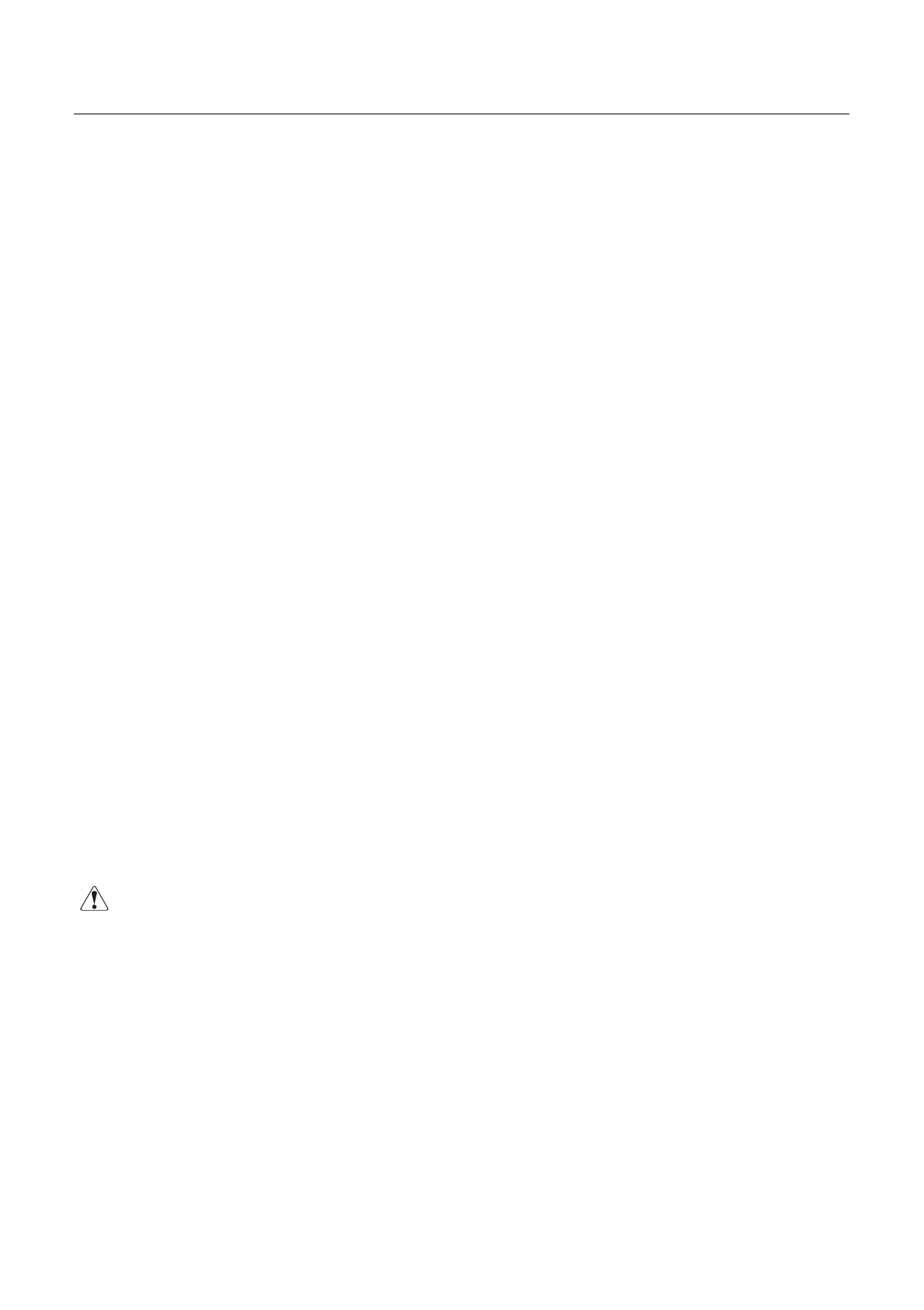
CBM-270 User’s Manual
CITIZEN
31
4
44
4.
..
.12
1212
12
R
RR
Re
ee
ed
dd
d/
//
/B
BB
Bl
ll
la
aa
ac
cc
ck
k k
k P
PP
Pr
rr
ri
ii
in
nn
nt
t t
t (
((
(P
PP
Pr
rr
re
ee
ec
cc
ca
aa
au
uu
ut
tt
ti
ii
io
oo
on
nn
ns
s s
s f
ff
fo
oo
or
r r
r U
UU
Us
ss
se
ee
e)
))
)
(1) Types of paper
The red and black two-color thermal paper changes its colors by controlling the energy
applied to the thermal head. It is largely divided into two types, depending on the color
development order. Select either of them to suit your application.
1. Red-based two-color thermal paper (PB670: MITSUBISHI PAPER MILLS)
Red print (low energy)
®
Black print (high energy)
2. Black-based two-color thermal paper (735FA: RICOH)
Black print (low energy)
®
Red print (high energy)
(2) High-energy printing rate
High-energy print (black print on red-based paper, or red print on black-based paper)
required the application of high energy to the thermal head. To protect the service life of
the thermal head, use the following printing rate as a guideline; use the fixed split (6-split)
method.
1. Continuous print of high-energy print only : 6 % or less
2. Mixed continuous print of low-energy and high-energy print
: 30 % or less of the standard printing rate
of 12.5 %
3. Printing rate per dot line : 50 % or less
(3) Minimum dots for high-energy print
When high-energy print is used, the recommended minimum area is 3 dots (length)
´
3
dots (width) or more. Depending on the set printing density, the paper used, or the
printing characters, a sufficient change of color tone may not be obtained even by high-
energy print.
(Characters such as [, !, ', (, i, -, font B with small dot matrix)
It is recommended to use in such printing patterns as double-width characters, double-
height characters, double-width and -height characters.
C
CC
CA
AA
AU
UU
UT
TT
TI
II
IO
OO
ON
NN
NS
SS
S
1) If high-energy print is continuously carried out at a high operating ambient temperature, the
thermal head will become hot more quickly and the protective circuit will be activated, to stop
printing more frequently.
Fully consider the working temperature and printing rate.
2) If a bar code is printed on the 2-color paper, both colors may appear in normal print and high-
energy print, or the bar code may not be correctly read by a bar code reader. Be fully aware of
this when using the 2-color paper.
3) Do not perform high-energy print on the single-color paper (regular thermal paper). It may
deteriorate the service life of the thermal head or the printing quality.
4) For setting, see Commands (DC3: Switching the Red/Black Printing).


















